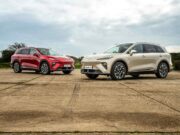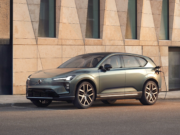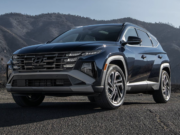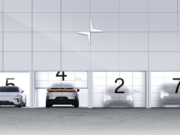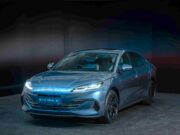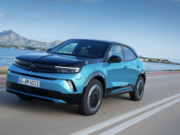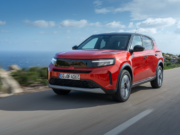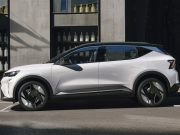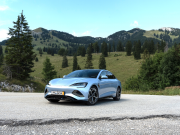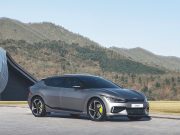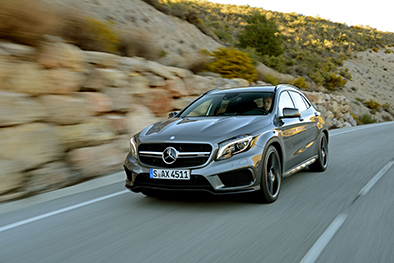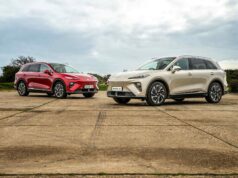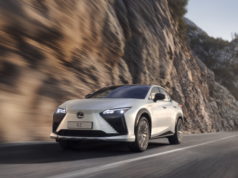
The all-new Nissan LEAF represents a bold and exciting new chapter for the world’s first mass-market electric vehicle, a car that has already played a pivotal role in reshaping the automotive industry. Since its original launch in 2010, the LEAF has been at the forefront of the electric vehicle revolution, with nearly 700,000 units sold globally. Now, it returns with a new design, greater range, and smarter technology, reaffirming its position as a leader in Nissan’s electrification strategy and offering a compelling alternative for buyers considering a switch from internal combustion engines.
Redesigned from the ground up at Nissan’s Global Design Studio in Atsugi, Japan, the new LEAF introduces a sleek, aerodynamic silhouette that reflects both form and function. The flowing roofline, flush door handles, and sculpted bodywork contribute to a drag coefficient of just 0.25, helping the car slice cleanly through the air and maximise range. While maintaining a compact footprint that is ideal for urban driving and tight parking situations, the new model also offers surprising practicality, including 437 litres of cargo space and optional roof rails for even more versatility.

Step inside and the cabin reveals an elevated sense of quality and spaciousness, with clean lines, ambient lighting, and enhanced visibility. The panoramic dimming glass roof, premium material finishes, and distinctive LEAF detailing speak to the thoughtful craftsmanship throughout. Customers can choose from interior colour schemes in black or white with stylish purple accents, while the exterior palette includes seven expressive colours such as the model’s signature turquoise, Luminous Teal. Across all grades, alloy wheel designs are optimised for both aesthetics and efficiency, with sizes ranging from 18 to 19 inches.
Underpinning the all-new LEAF is the advanced CMF-EV modular platform it shares with the Nissan Ariya, ensuring a composed and comfortable driving experience. The MacPherson front suspension and multi-link rear setup help deliver confident handling and a balanced ride whether navigating city streets or covering long motorway distances. Flexibility remains central to the LEAF’s appeal, with customers able to choose between two battery options that offer real-world usability and impressive range.

The new LEAF boasts a maximum range of up to 604 kilometres, with fast-charging capability that recovers up to 417 kilometres in just 30 minutes using a 150kW DC charger. Even at highway speeds, it delivers more than 330 kilometres of range at 130km/h, making it perfectly suited to both daily commutes and extended road trips. Intelligent battery thermal management works hand-in-hand with Google’s in-car route planner, automatically preparing the battery for optimal charging performance as the car approaches a fast charger. This level of integration reduces driver effort and makes EV ownership feel seamless and rewarding.
Practicality extends beyond the driving range. The new LEAF features Vehicle-to-Load (V2L) capability, allowing it to power a range of external devices such as camping equipment, small appliances, or work tools by accessing up to 3.6kW through a dedicated accessory adaptor. It also lays the groundwork for future Vehicle-to-Grid (V2G) functionality, which will enable owners to send excess stored energy back into the grid, supporting sustainability while reducing household energy costs.

In addition to its electric powertrain, the LEAF is equipped with a suite of intelligent driver assistance technologies that further enhance the driving experience. From intuitive controls to connected services powered by integrated Google Maps, the LEAF ensures every journey is efficient and informed. These innovations make it not just a car, but a key part of a larger electrified lifestyle.
Production of the all-new LEAF will take place at Nissan’s Sunderland plant in the UK, a cornerstone of the company’s EV36Zero initiative. This program represents a long-term commitment to zero-emission mobility and includes a local battery supply chain and renewable energy-powered manufacturing processes. As the first new model to emerge from this initiative, the new LEAF embodies the shift toward a sustainable automotive future, rooted in innovation and responsibility.

With orders opening this autumn and deliveries expected in early 2026, the all-new Nissan LEAF signals the next era of electric mobility. More than a redesign, it is a reinvention — honouring its legacy while offering drivers a smarter, more capable, and more connected EV that’s ready to take on whatever lies ahead.



